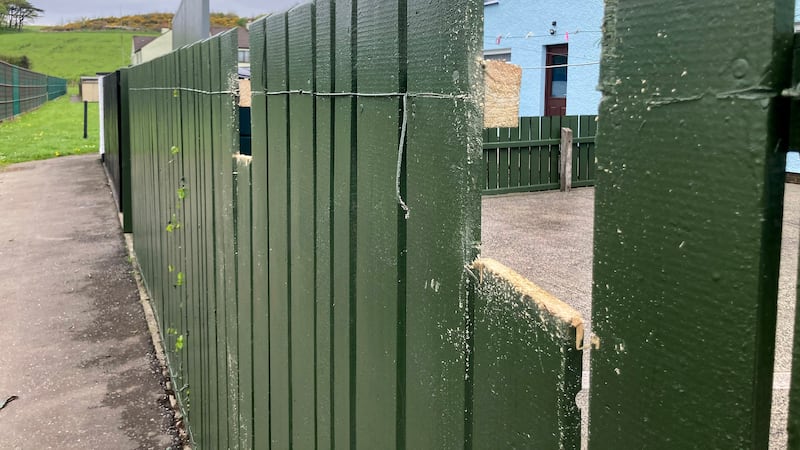The decision by the Green Party’s Minister for Children Roderic O’Gorman and his government colleagues to railroad through legislation, the end result of which being that thousands of testimonies and accounts given to the Commission of Investigation by survivors of so-called ‘Mother and Baby Homes’ would be locked away for 30 years, with access denied to them, is a particularly cruel one, which very clearly added significant pain to survivors and their families.
The manner in which this Bill was rushed through the Seanad by government was also particularly inconsiderate, with all stages of the Bill being taken over just a day and a half. They then added further insult to injury when a totally unrelated piece of legislation was hooked onto the Bill at the last minute – another tactic now regularly being abused by government.
The now regular contempt for parliamentary process and legislative scrutiny by Fianna Fáil, Fine Gael and the Green Party shows not only a deep disregard for opposition parties has also shown just how readily they will set aside the needs and concerns expressed by broader society, even those like the survivors of the Mother and Baby Homes, who have already endured so much.
I don’t know if representatives, members and supporters of the SDLP and Green Party here in the north are watching how their partners are conducting themselves in government in the capital, but I would respectfully suggest they may want to stop and take a look – quickly.
In the Seanad, Sinn Féin and other opposition groups endeavoured to put the needs of victims and survivors front and centre, we sought to robustly amend the Bill in a way that reflected what the thousands upon thousands of people who begged for this Bill to be pulled were telling us. Fianna Fáil, Fine Gael and the Green Party ignored them and ploughed ahead with the Bill regardless.
Minister O’Gorman, while not accepting any of our amendments, his government colleagues in the Seanad instead voting all of them down, did indicate a willingness to look at these issues when the legislation comes before the Dáil.
I sincerely hope he will.
I hope he will hear the pleading voices of the thousands who are asking him and his government colleagues to do the right thing by survivors.
It didn’t need to be like this – but it’s not too late to do the right thing. I hope, for the sake of survivors, Minister O’Gorman and his government colleagues do just that.
SEANADÓIR NIALL Ó DONNGHAILE
East Belfast
The status of Northern Ireland
Robert Sullivan (October 14) cites “indisputable facts” regarding Northern Ireland’s status, but seems to be selective on which of said facts he relies on, which is not the basis for a cogent argument.
Ireland was a British colony up to 1921, England’s first. In the 1921 Anglo Irish Agreement Britain retained the six north-eastern counties of Ulster within the Empire.
In Professor Brendan O’Leary’s History of Northern Ireland Vol.3, published by OUP last year, Prof Colin Harvey describes the old Stormont as an “elective dictatorship”.
I think this may account for certain unionist attitudes.
Therefore Northern Ireland was a British Colony up to 1998 and the Good Friday Agreement.
In 1993 there was the joint Downing Street Declaration in which Britain effectively gave up ‘ownership’ of Northern Ireland, giving the power to all the people of Northern Ireland, not just the unionists, to determine its constitutional future.
So, far from settling Northern Ireland’s status in perpetuity, the GFA made NI’s membership of the UK conditional on the wishes of the whole electorate, the alternative being reunification.
If there is a majority vote for a united Ireland then London will accede to the wishes of the majority.
I have yet to hear a unionist give a name to Northern Ireland’s new status, or even recognise the change.
Ireland has changed utterly since the treaty, but I see no change in unionists’ attitudes.
In the face of nationalists’ anger at the very thought of celebrating 1921 unionists have been urged to break 50 years of silence to make their case.
There seems little recognition that the Good Friday Agreement changed Northern Ireland’s status permanently.
PAUL ROCHE
Dublin
Unwarranted criticism
I refer to Carmel Maginness’s letter (October 21) regarding Mary McAleese’s criticism of the Mercy nuns in Belfast.
My sister and I both attended the convent on the Crumlin Road (beside the Mater hospital) and received the most wonderful education and grounding in our religion possible for those times.
I agree completely with Mrs Maginness and fail to recognise Mrs McAleese’s description of the Sisters being ‘mercy less’, rather they gave us values which have stood us in very good stead all our lives.
Before leaving for grammar school we were taught the rudiments of French, algebra and geometry. We also were very knowledgeable in Irish before the age of 10 or 11. Would this happen today – I don’t think so?
I felt angry reading Mrs McAleese’s remarks and felt the need to write and give my opinion.
MARIE MURPHY
Belfast BT8
Mural sums up unionist position on self-determination
According to Brian Brian Feeney (October 7), “Despite regularly referring to his support for the Good Friday Agreement Micheál Martin has ended up rejecting its central tenet that the future is to be self-determined by the people of Ireland alone through concurrent referendums.”
This seems to have already happened. According to David Trimble: “The two Irelands had each exercised their right to self-determination in both different and irreconcilable ways.” [The Foundation of Northern Ireland].
Unionists have self-determined that they are British and that their future is with the British state. The mural on Sandy Row sums it up: ‘British and Proud’.
MALACHY SCOTT
Belfast BT15







